Voici 10 des meilleurs poèmes anglais d'hiver, de la méditation hivernale de Robert Louis Stevenson au poème classique de William Shakespeare. Comme on peut s'y attendre, la neige est très présente dans nombre de ces poèmes, alors couvrez-vous bien avant de commencer la lecture !
Les 10 plus beaux poèmes anglais d'hiver
Contre toute attente, l’hiver est une saison d'une beauté saisissante. Avec ses matins givrés, ses journées claires et fraîches et sa neige poudreuse, il est facile de comprendre comment elle a inspiré les poètes anglais à travers l'histoire.
J’ai sélectionné pour vous des poèmes anglais d'hiver classiques et contemporains, du très apprécié poème de Robert Louis Stevenson “Winter” à “Thaw”, un court poème de Edward Thomas.
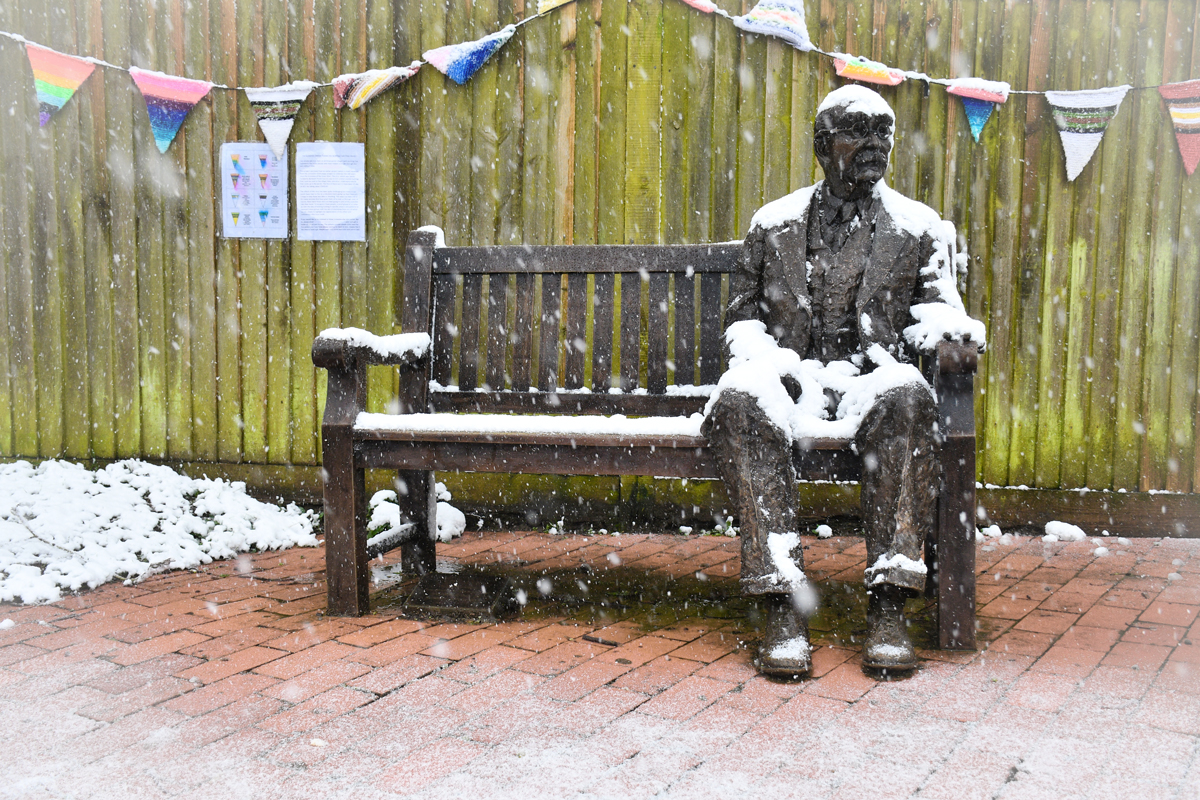
Rudyard Kipling couvert de neige © French Moments
Des poèmes sur la beauté de l'hiver
L'hiver est une saison qui ne fait pas l’unanimité. Elle divise l'opinion plus que toute autre saison : on l’apprécie pour ses paysages fantastiques... Ou on la fuit en espérant la venue du printemps !
Le temps est froid, le sol est dur, et les arbres et les plantes semblent morts. Comme il n'y a pas grand-chose d'autre à faire, c'est une période propice au travail et à l’inspiration.
La saison des froides gelées et des paysages enneigés a en effet attiré de nombreux poètes anglais. J’ai voulu les publier dans leur langue originale et ne pas les traduire en français afin de respecter la beauté des mots employés.
Enfin, j’ai accompagné ces plus beaux poèmes anglais d'hiver par des photos de saison, pour vous donner l'envie de visiter la campagne anglaise.
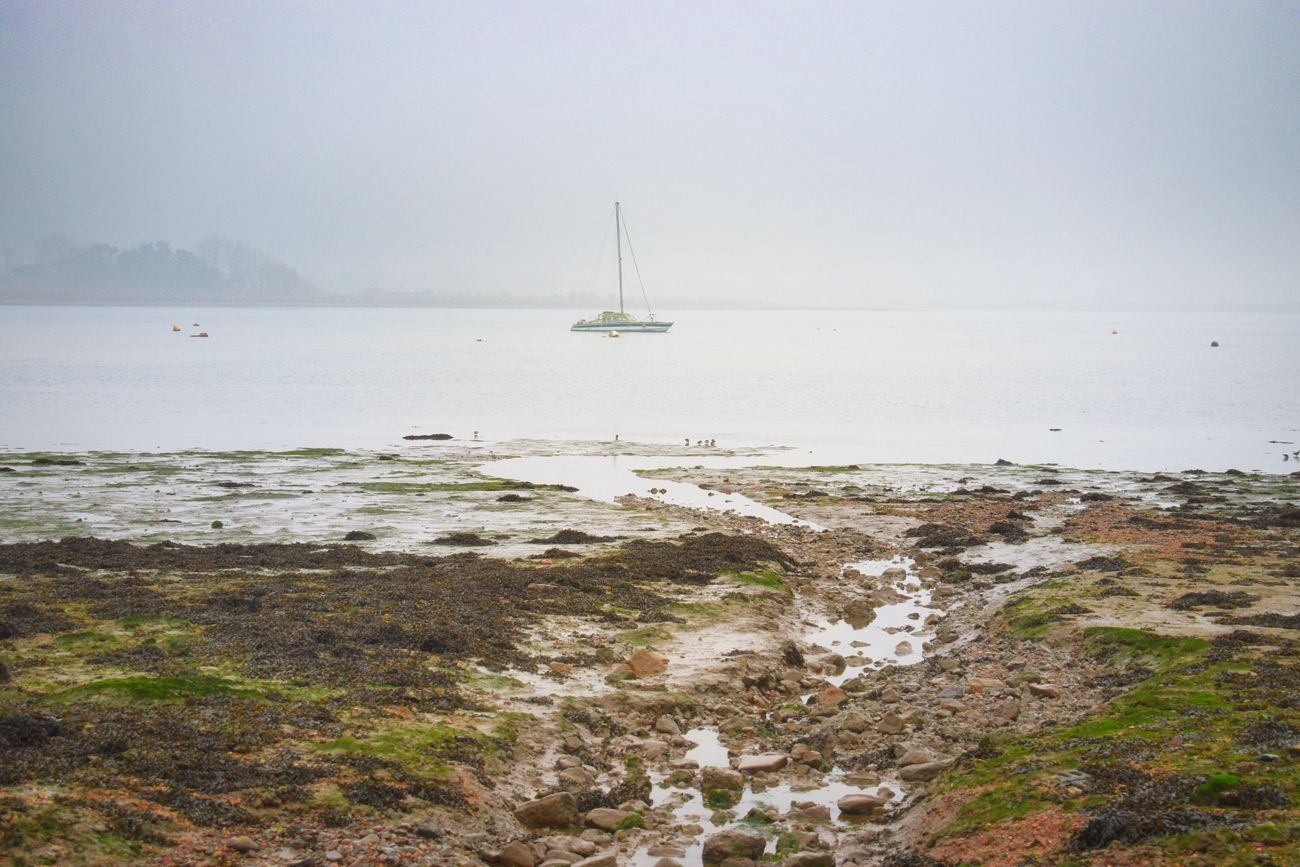
L'hiver dans le Chichester Harbour © French Moments
The Question
Percy Bysshe Shelley (1792-1822)
I dreamed that, as I wandered by the way,
Bare Winter suddenly was changed to Spring,
And gentle odours led my steps astray,
Mixed with a sound of waters murmuring
Along a shelving bank of turf, which lay
Under a copse, and hardly dared to fling
Its green arms round the bosom of the stream,
But kissed it and then fled, as thou mightest in dream.
There grew pied wind-flowers and violets,
Daisies, those pearled Arcturi of the earth,
The constellated flower that never sets;
Faint oxlips; tender bluebells, at whose birth
The sod scarce heaved; and that tall flower that wets—
Like a child, half in tenderness and mirth—
Its mother's face with Heaven's collected tears,
When the low wind, its playmate's voice, it hears.
And in the warm hedge grew lush eglantine,
Green cowbind and the moonlight-coloured may,
And cherry-blossoms, and white cups, whose wine
Was the bright dew, yet drained not by the day;
And wild roses, and ivy serpentine,
With its dark buds and leaves, wandering astray;
And flowers azure, black, and streaked with gold,
Fairer than any wakened eyes behold.
And nearer to the river's trembling edge
There grew broad flag-flowers, purple pranked with white,
And starry river buds among the sedge,
And floating water-lilies, broad and bright,
Which lit the oak that overhung the hedge
With moonlight beams of their own watery light;
And bulrushes, and reeds of such deep green
As soothed the dazzled eye with sober sheen.
Methought that of these visionary flowers
I made a nosegay, bound in such a way
That the same hues, which in their natural bowers
Were mingled or opposed, the like array
Kept these imprisoned children of the Hours
Within my hand,—and then, elate and gay,
I hastened to the spot whence I had come,
That I might there present it!—Oh! to whom?
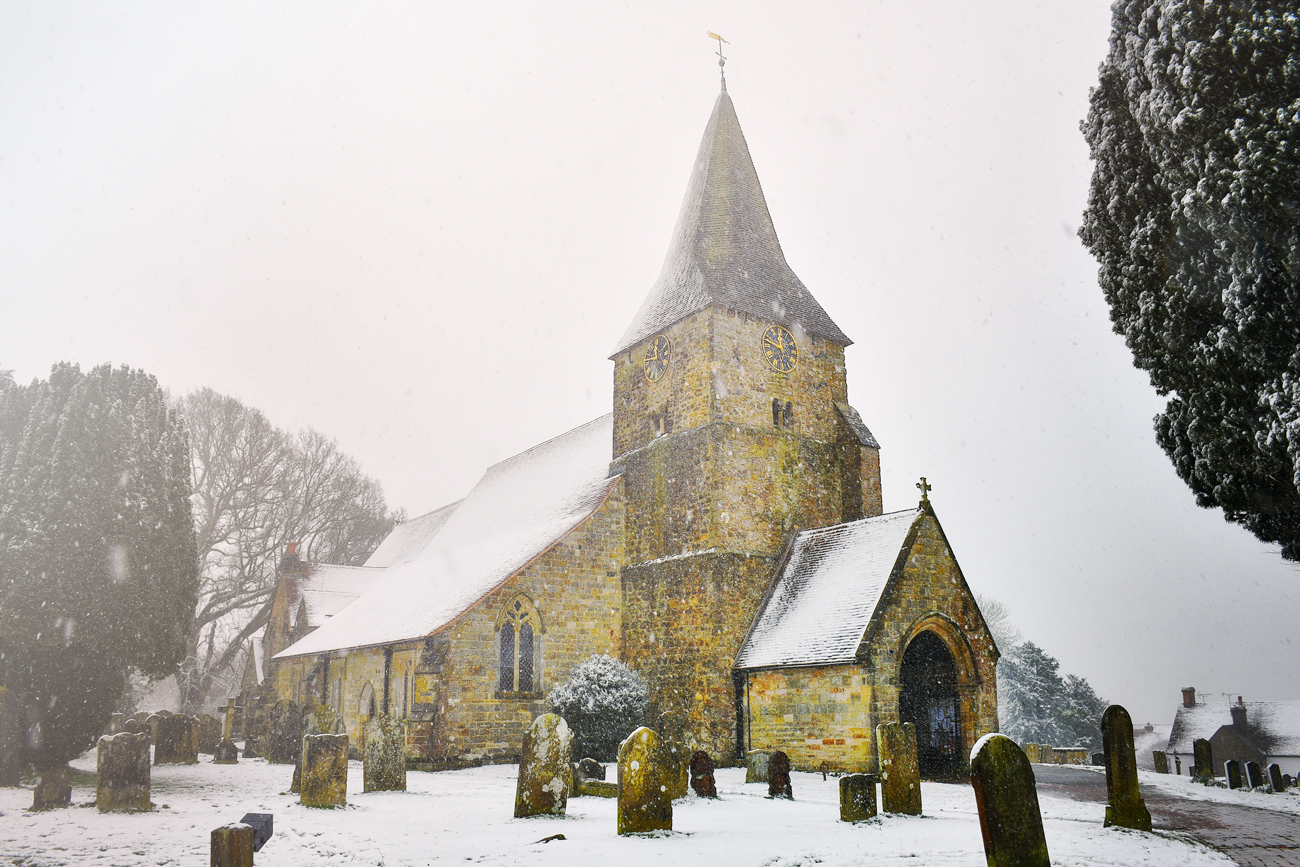
L'église de Burwash en hiver © French Moments
Winter
James Thomson (1700-1748)
See, Winter comes to rule the varied year,
Sullen and sad, with all his rising train—
Vapours, and clouds, and storms. Be these my theme,
These, that exalt the soul to solemn thought
And heavenly musing. Welcome, kindred glooms!
Congenial horrors, hail! With frequent foot,
Pleas’d have I, in my cheerful morn of life,
When nurs’d by careless solitude I liv’d
And sung of Nature with unceasing joy,
Pleas’d have I wander’d through your rough domain;
Trod the pure virgin-snows, myself as pure;
Heard the winds roar, and the big torrent burst;
Or seen the deep-fermenting tempest brew’d
In the grim evening-sky. Thus pass’d the time,
Till through the lucid chambers of the south
Look’d out the joyous Spring—look’d out and smil’d.
[...]
With the fierce rage of Winter deep suffus’d,
An icy gale, oft shifting, o’er the pool
Breathes a blue film, and in its mid-career
Arrests the bickering stream. The loosen’d ice,
Let down the flood and half dissolv’d by day,
Rustles no more; but to the sedgy bank
Fast grows, or gathers round the pointed stone,
A crystal pavement, by the breath of heaven
Cemented firm; till, seiz’d from shore to shore,
The whole imprison’d river growls below.
Loud rings the frozen earth, and hard reflects
A double noise; while, at his evening watch,
The village-dog deters the nightly thief;
The heifer lows, the distant waterfall
Swells in the breeze; and with the hasty tread
Of traveller the hollow-sounding plain
Shakes from afar. The full ethereal round,
Infinite worlds disclosing to the view,
Shines out intensely keen, and, all one cope
Of starry glitter, glows from pole to pole.
From pole to pole the rigid influence falls
Through the still night, incessant, heavy, strong,
And seizes nature fast. It freezes on,
Till morn, late-rising o’er the drooping world,
Lifts her pale eye unjoyous. Then appears
The various labour of the silent night:
Prone from the dripping eave, and dumb cascade,
Whose idle torrents only seem to roar,
The pendant icicle; the frost-work fair,
Where transient hues and fancy’d figures rise;
Wide-spouted o’er the hill the frozen brook,
A livid tract, cold-gleaming on the morn;
The forest bent beneath the plumy wave;
And by the frost refin’d the whiter snow
Incrusted hard, and sounding to the tread
Of early shepherd, as he pensive seeks
His pining flock, or from the mountain top,
Pleas’d with the slippery surface, swift descends.
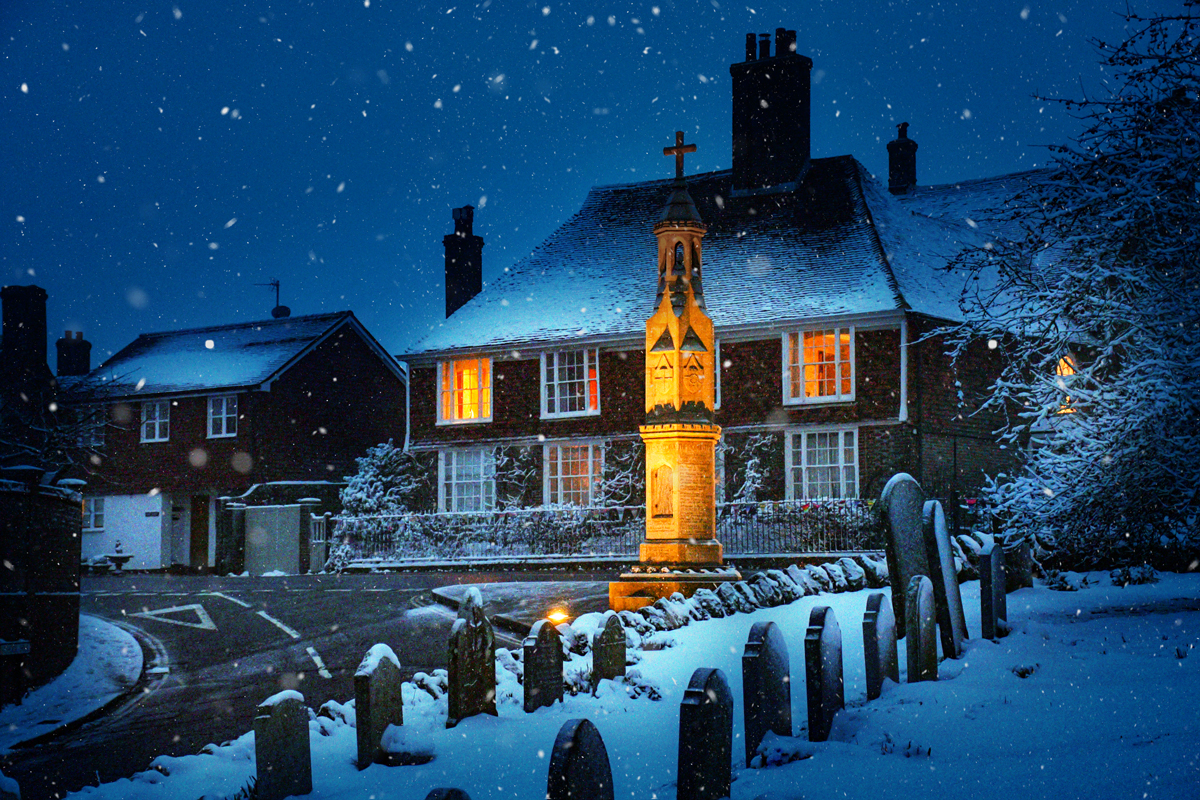
La neige en Angleterre à Burwash © French Moments
Winter
Robert Louis Stevenson (1850-1894)
In rigorous hours, when down the iron lane
The redbreast looks in vain
For hips and haws,
Lo, shining flowers upon my window pane
The silver pencil of the winter draws.
When all the snowy hill
And the bare woods are still;
When snipes are silent in the frozen bogs,
And all the garden garth is whelmed in mire,
Lo, by the hearth, the laughter of the logs –
More fair than roses, lo, the flowers of fire!
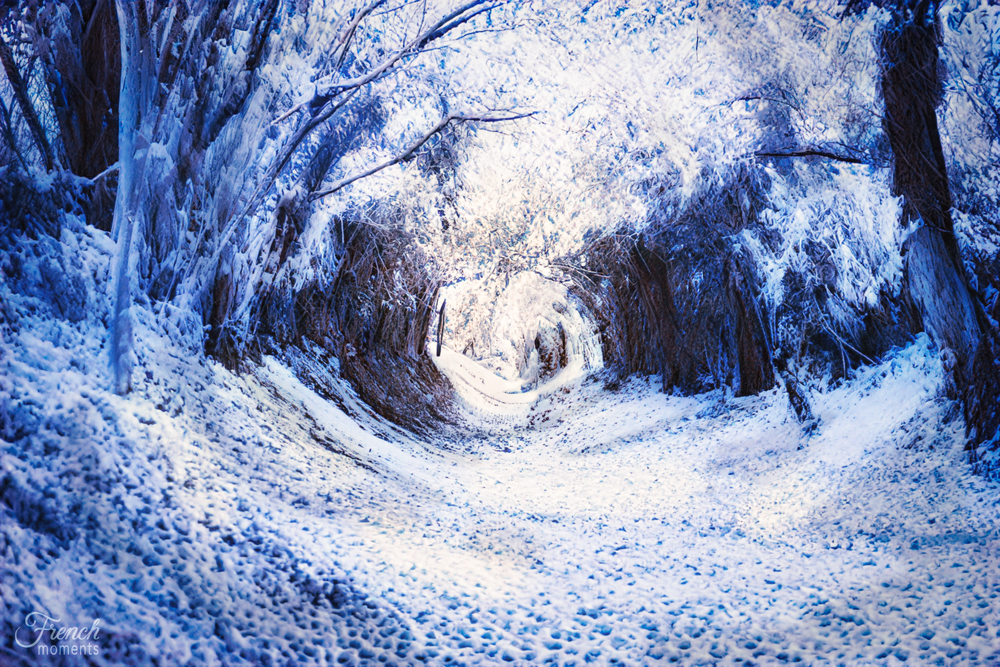
L'hiver recréé au tunnel d'arbres de Halnaker en Angleterre © French Moments
Old January
John Clare (1793-1864)
Old January, clad in crispy rime,
Comes limping on, and often makes a stand;
The hasty snow-storm ne’er disturbs his time,
He mends no pace, but beats his dithering hand.
And February, like a timid maid,
Smiling and sorrowing follows in his train;
Huddled in cloak, of miry roads afraid,
She hastens on to meet her home again.
Then March, the prophetess, by storms inspired,
Gazes in rapture on the troubled sky,
And now in headlong fury madly fired,
She bids the hail-storm boil and hurry by.
Yet ’neath the blackest cloud, a Sunbeam flings
Its cheering promise of returning Springs.
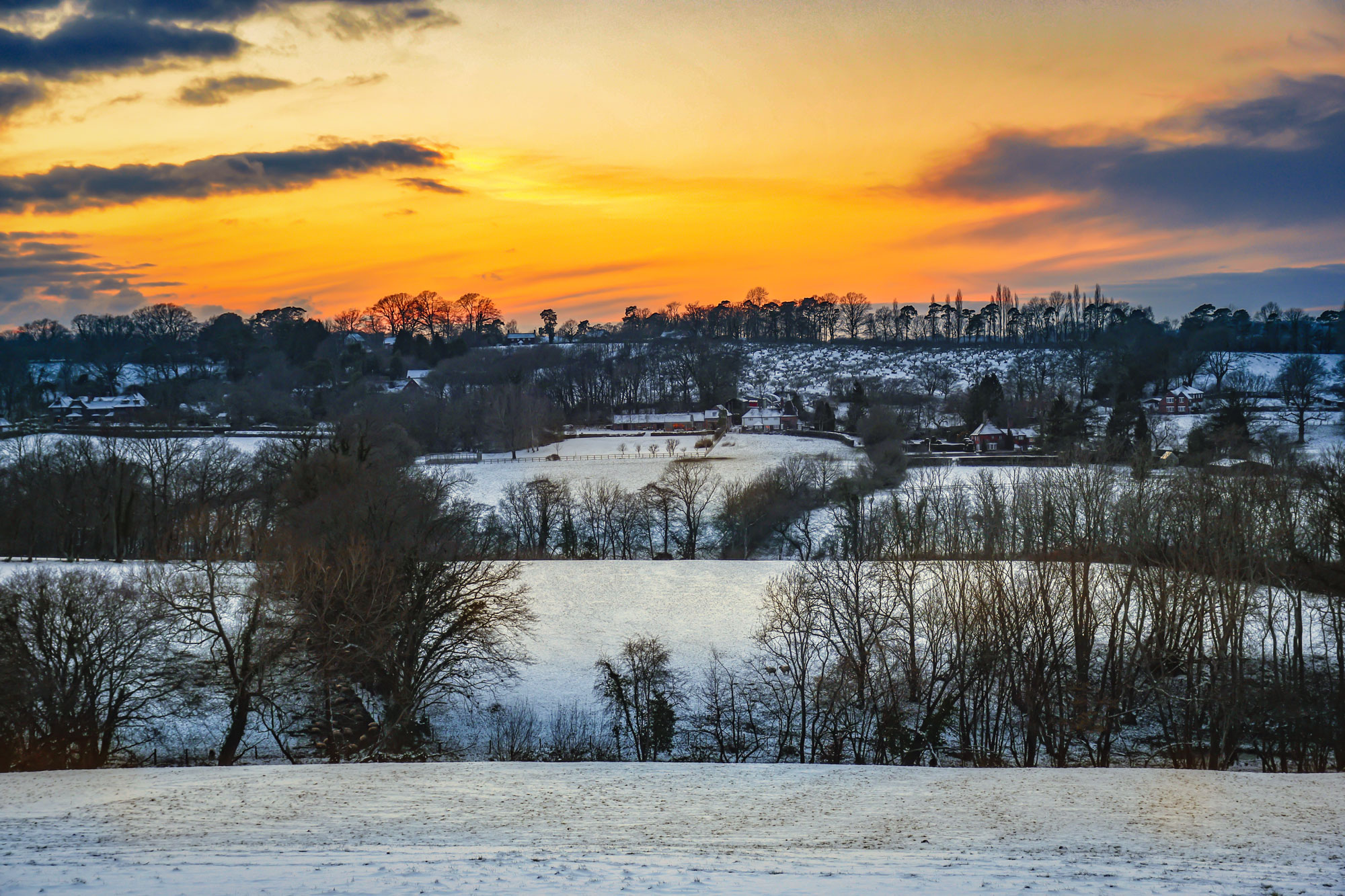
La campagne anglaise sous la neige © French Moments
Winter
George Darley (1795-1846)
The merciful sweet influence of the South,
Cheereth the hardy winter-buds no more;
No scented breath hovers around their mouth,
No beauty in their bosoms to adore.
With icy foot the rude North treads them down,
And tells them they shall never greet the Spring,
But perish at the line of Winter's frown,
That kills the very hope of blossoming.
Thus while he fans them with his frosty wing
They scatter all their leaves upon the earth,
Not worth the hapless ruddock's gathering,
And die upon the spot that gave them birth.
How like in fate the winter-bud and I!
We live in sorrow, and in sorrow die.
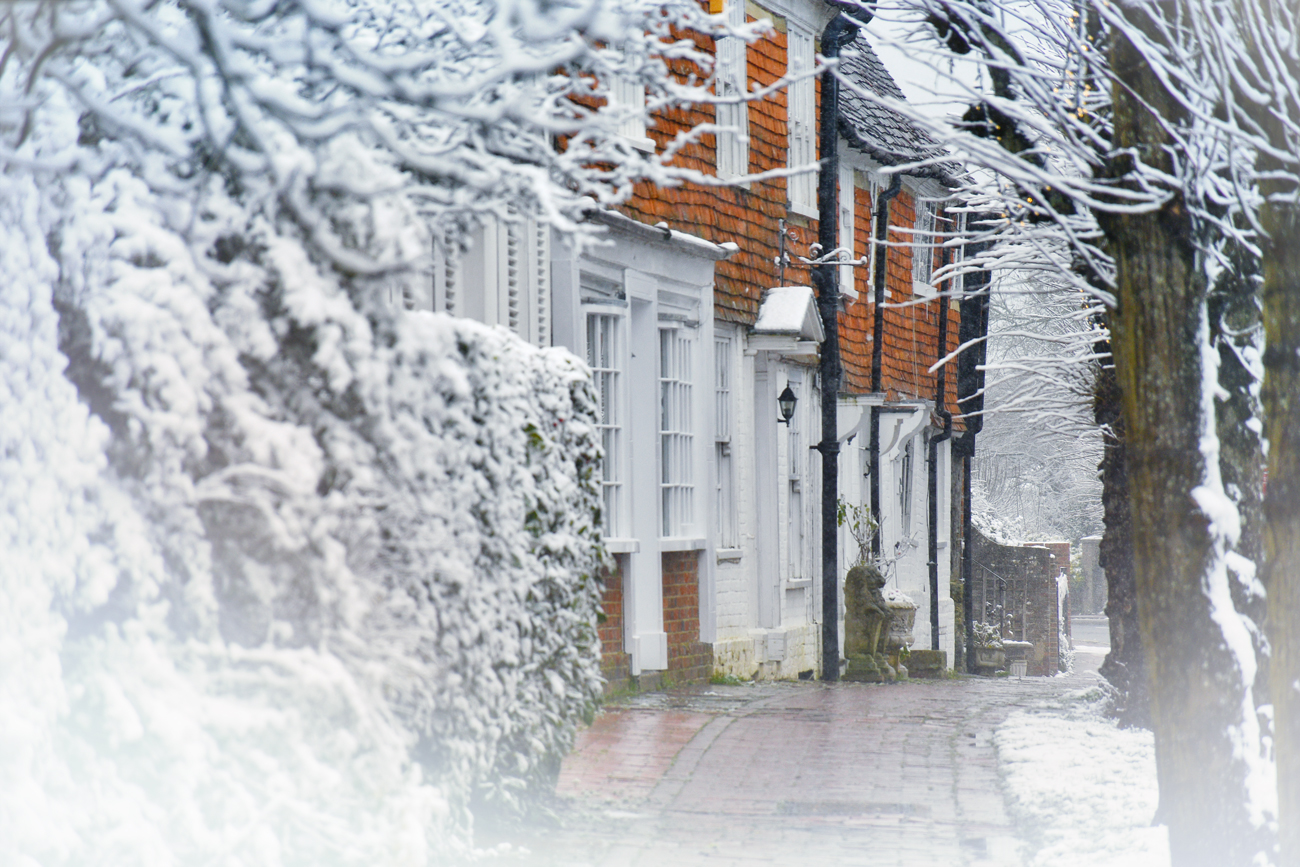
La Grande Rue de Burwash sous la neige © French Moments
Thaw
Edward Thomas (1878-1917)
Over the land freckled with snow half-thawed
The speculating rooks at their nests cawed
And saw from elm-tops, delicate as flowers of grass,
What we below could not see, Winter pass.
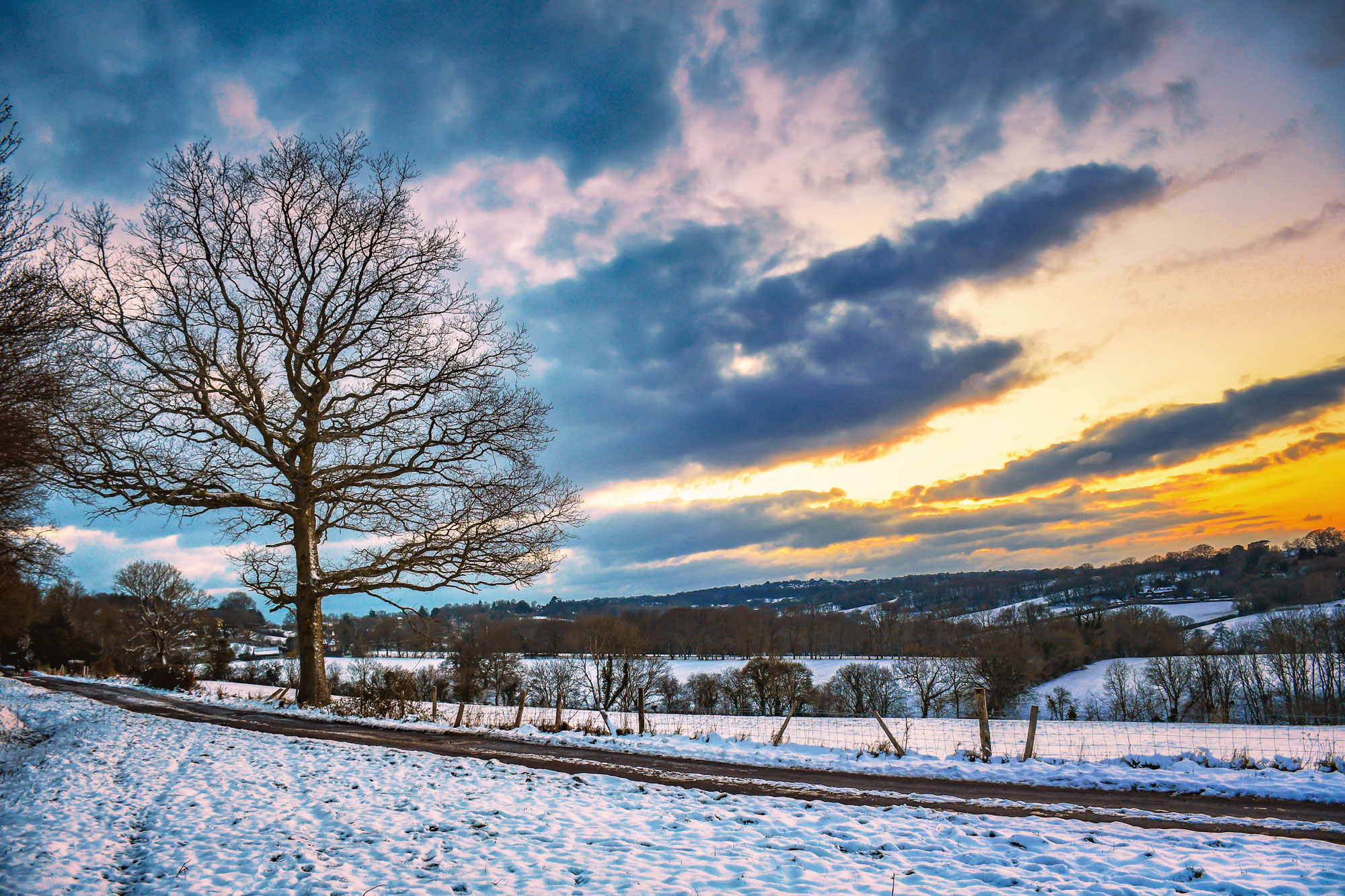
La neige en Angleterre : dans les alentours de Burwash © French Moments
From February
William Morris (1834-1896)
The change has come at last, and from the west
Drives on the wind, and gives the clouds no rest,
And ruffles up the water thin that lies
Over the surface of the thawing ice;
Sunrise and sunset with no glorious show
Are seen, as late they were across the snow;
The wet-lipped west wind chilleth to the bone
More than the light and flickering east hath done.
Full soberly the earth’s fresh hope begins,
Nor stays to think of what each new day wins:
And still it seems to bid us turn away
From this chill thaw to dream of blossomed May…
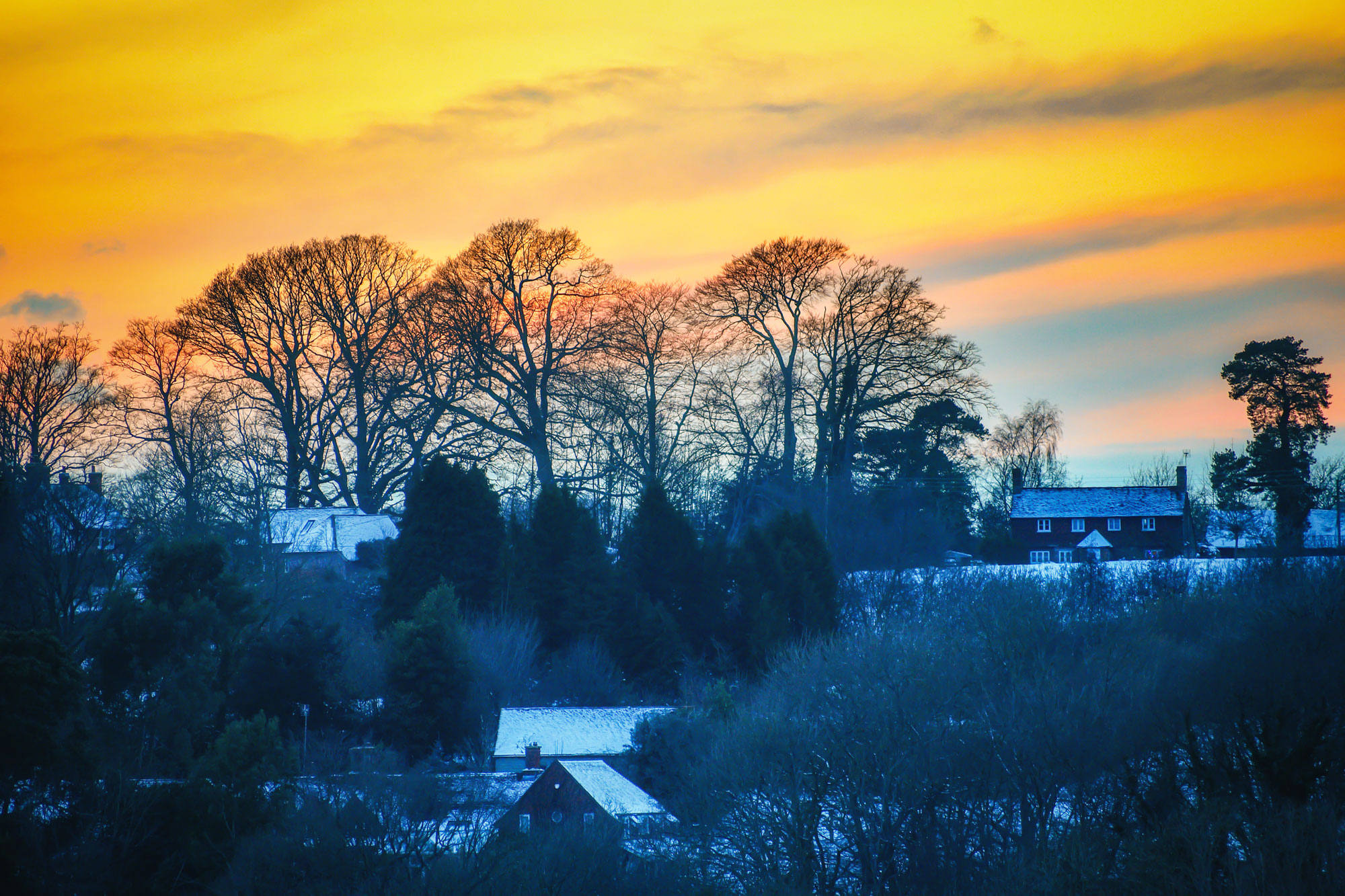
L'Angleterre sous la neige © French Moments
Snow Drop
Jon Silkin (1930-1997)
The blanched melted snows
Fill the plant’s stem, a capillary
Of heightened moisture. Air weights
Round a white head hanging
Above granulated earth.
There, are three scarab-like petals,
Open, an insect’s carapace
With a creature in these, poised
It does not move. A white
Cylinder with two
Thin bands of green, broken
Away where that part finishes.
There is no more.
The sun’s heat reaches the flower
Of the snowdrop.
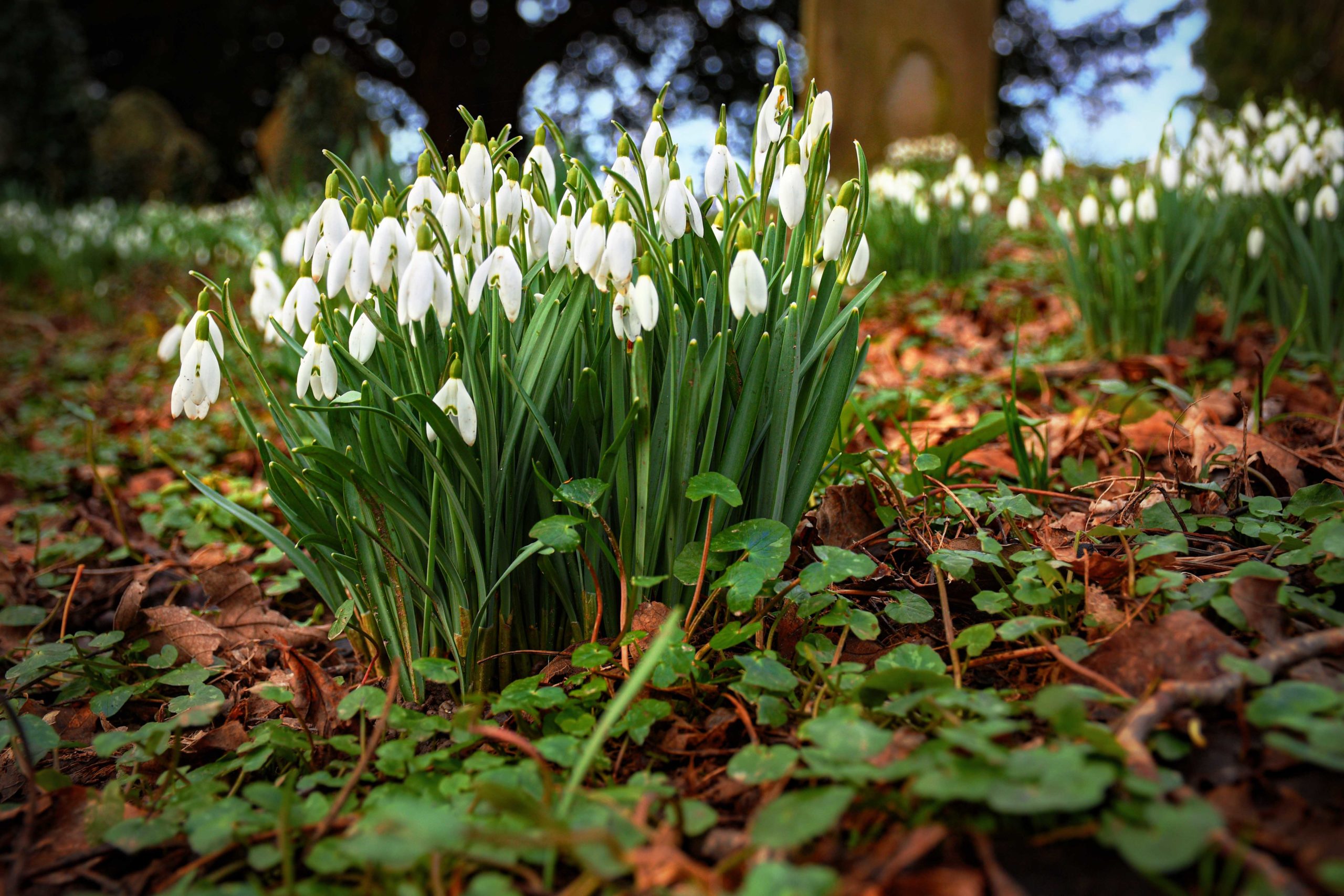
Perce-neige à Burwash © French Moments
Winter-Time
Robert Louis Stevenson (1850-1894)
Late lies the wintry sun a-bed,
A frosty, fiery sleepy-head;
Blinks but an hour or two; and then,
A blood-red orange, sets again.
Before the stars have left the skies,
At morning in the dark I rise;
And shivering in my nakedness,
By the cold candle, bathe and dress.
Close by the jolly fire I sit
To warm my frozen bones a bit;
Or with a reindeer-sled, explore
The colder countries round the door.
When to go out, my nurse doth wrap
Me in my comforter and cap;
The cold wind burns my face, and blows
Its frosty pepper up my nose.
Black are my steps on silver sod;
Thick blows my frosty breath abroad;
And tree and house, and hill and lake,
Are frosted like a wedding cake.
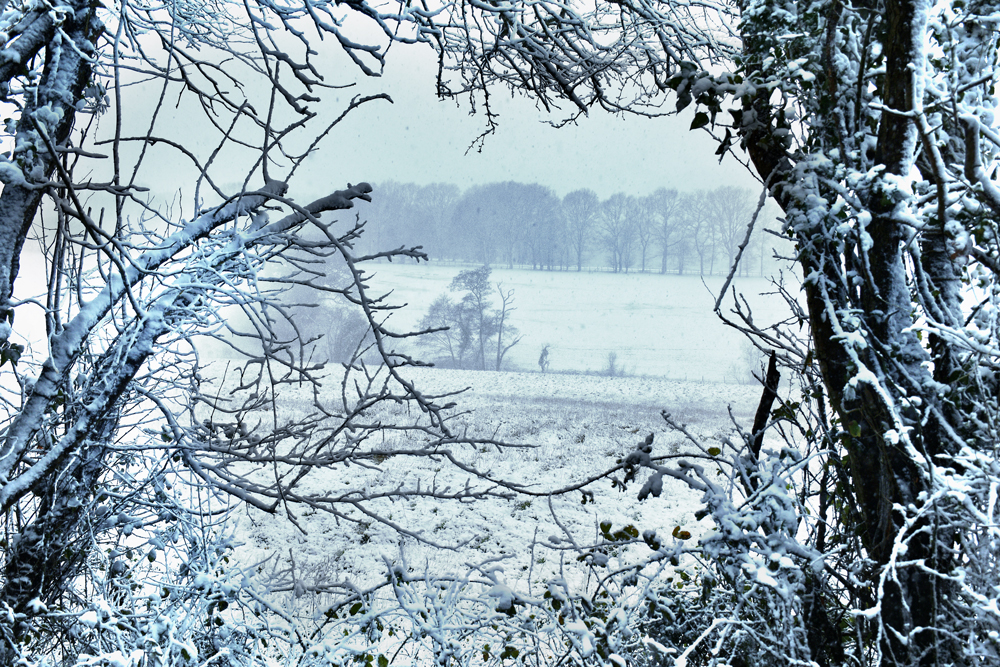
La campagne anglaise sous la neige (Burwash) © French Moments
Blow Blow Thou Winter Wind
William Shakespeare (1564-1616)
Blow, blow, thou winter wind,
Thou art not so unkind
As man’s ingratitude;
Thy tooth is not so keen,
Because thou art not seen,
Although thy breath be rude.
Heigh-ho! sing, heigh-ho! unto the green holly:
Most friendship is feigning, most loving mere folly:
Then, heigh-ho, the holly!
This life is most jolly.
Freeze, freeze, thou bitter sky,
That dost not bite so nigh
As benefits forgot:
Though thou the waters warp,
Thy sting is not so sharp
As friend remembered not.
Heigh-ho! sing, heigh-ho! unto the green holly...
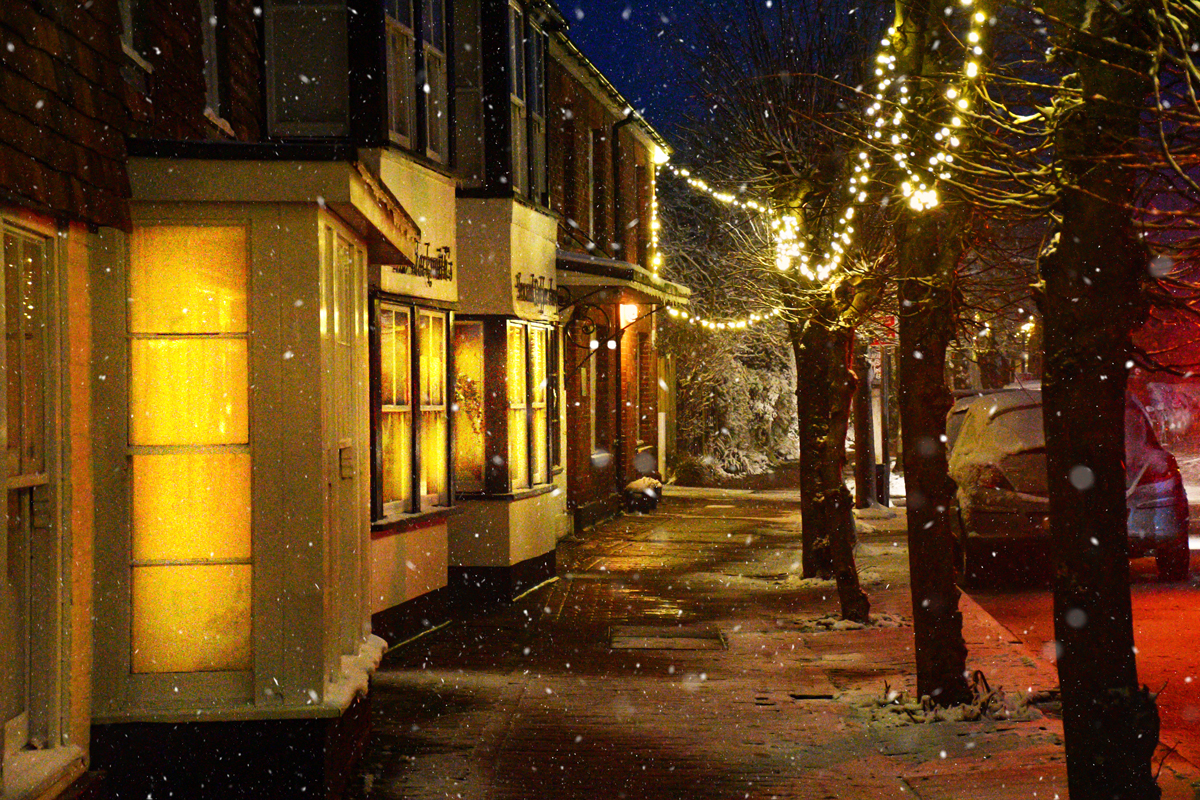
La neige en Angleterre : à Burwash © French Moments
Pour en savoir plus
Pour découvrir davantage de poèmes anglais d'hiver, je vous suggères les sites suivants :
- 10 of the Best Poems about England and the English Countryside
- The Poetry Society
- L'article de Wikipedia sur la poésie anglaise
- L'article de Wikipedia sur les poètes anglais
- La neige en Angleterre : une collection de photos sur le blog
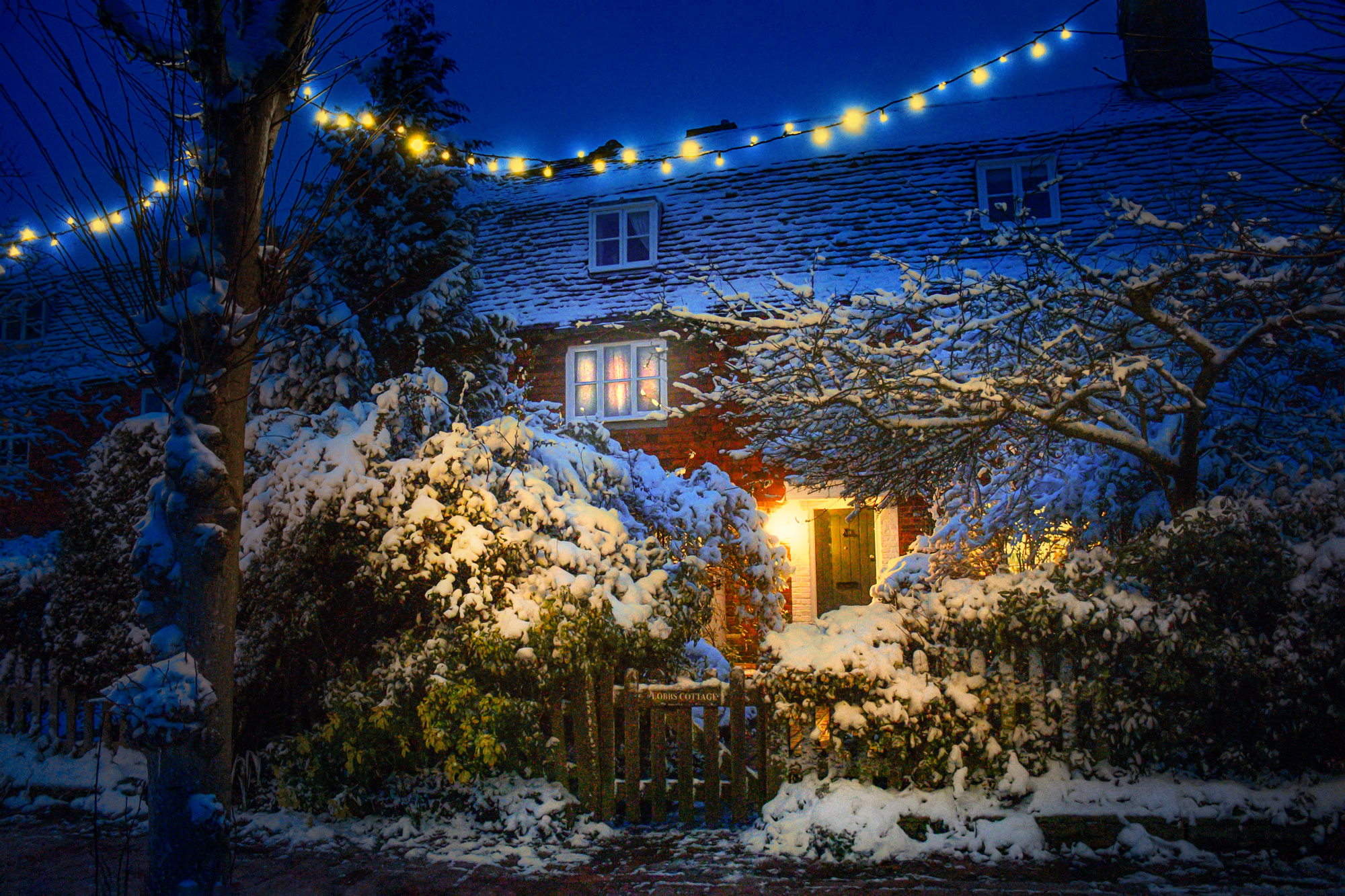
Noël à Burwash © French Moments

